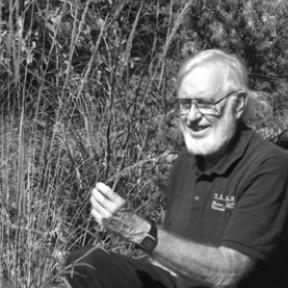The teachings and philosophy of Aldo Leopold
Aldo Leopold (1887-1948) was a forester, a conservationist, a teacher, a hunter, a naturalist and an extremely talented and prolific writer who lived in the first half of the twentieth century. He is most famous for writing “A Sand County Almanac,” although he also wrote a textbook on game management and over 500 articles, essays and papers on all aspects of conservation and the natural world. He cofounded the Wilderness Society and served on many state and national boards and commissions as well as the boards of several conservation organizations.
Leopold spent most of his time and energy on various aspects of native habitat conservation and game management. He was unquestionably one of the greatest advocates for conservation of native habitats and native animals in the early 1900s. Perhaps his most important contribution to land and wildlife management and conservation was a philosophy he called the Land Ethic.
To very briefly oversimplify his ideas, it would be that mankind is part of a community made up of the soil, the water, the plants, and the other animals, and that all components of that community, including all species of native plants and animals, are important to the overall health (or condition) of the community (or land). Leopold didn’t mean to imply that man does not occupy a special place in this community, or that his needs don’t take priority--just that the condition of the soil, water, plants and other animals should also be considered.
Leopold put it this way, “We abuse land because we regard it as a commodity belonging to us. When we see land as a community to which we belong, we may use it with love and respect…. That land is a community is the basic concept of ecology, but that land is to be loved and respected is an extension of ethics.” He defined the land ethic as follows, “A land ethic, then, reflects the existence of an ecological conscience, and this in turn reflects a conviction of individual responsibility for the health of the land. Health is the capacity of the land for self-renewal.”
Today, we tend to think of ethics as what is right or wrong in the way one treats his fellow man, although I think most people have a sense that cruelty to animals is ethically and morally wrong. But Leopold was asserting that there are ethically right and wrong ways men treat not only animals, but the soil and water and plants as well.
In Leopold’s time, this attitude was far from being generally accepted. It was not uncommon for farmers and ranchers back then to use up and abuse the land until it was no longer profitable and then to simply move to a fresh piece of land and repeat the process.
But today, a lot of landowners who may never have heard of Aldo Leopold or the Land Ethic have also adopted an attitude that is certainly similar. Most landowners want to, “Leave the land in better shape than I found it” or to “Conserve this place for posterity.” I don’t know of anyone who buys a piece of land today that intends to “ruin it,” or “degrade it” or “use it up.”
Modern man has a huge impact on the ecosystem, on the health of the community of the soil, water, plants, animals and himself. It behooves us all to try to minimize that impact in every way we can, whether we own a large ranch, a small ranchette, a city lot or live in an apartment, we all impact the natural world. And it is the natural world, however degraded or compromised, that provides us with food, water, shelter, space to raise our children and a beautiful place to live.
So if we could all just give some thought to Leopold’s ideas before we make decisions about what to do on or to our land, or what we consume, or what our impact on the land will be, we will be practicing good land ethics. We can all consume less and conserve more. We can adopt habits that conserve water and all other natural resources. We can learn how to live with less fertilizer, fewer pesticides, and other non-essential things.
They are not making any more land, or water, or other natural resources. And we are using up natural areas in the name of “development” at an alarming pace. Leopold was ahead of his time. We need to pay attention to his ideas.
Until next time…
Happy New Year
Jim Stanley is a Texas Master Naturalist and the author of the books “Hill Country Ecology,” “Hill Country Landowner’s Guide” and “A Beginner’s Handbook for Rural Texas Landowners.” He can be reached at <jstmn@ktc.com>. Previous columns can be seen at <www.hillcountrynaturalist.org>.

